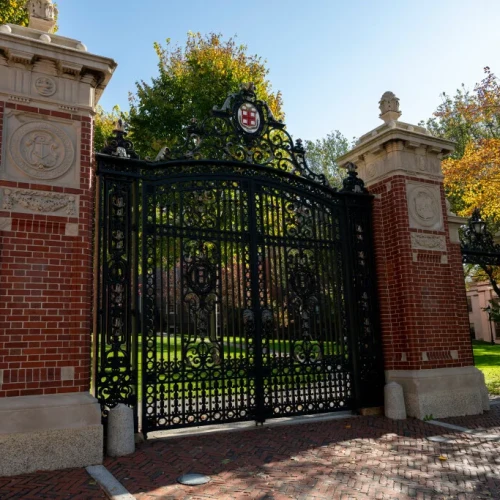College Hill is quiet these days. With Brown undergraduates enjoying the last few weeks of summer vacation, the few people on campus seem to have the place to themselves.
But the mood on campus is not so sunny, not after President Trump gloated about the deal the Brown struck last week to get the administration to unfreeze $510 million in frozen grant money.
“We have gotten rid of woke. Woke is dead,” Trump said the day the deal was announced.
Already at Brown, there are rumblings of discontent that the university chose to appease Trump.
“Universities should not be negotiating with this administration — I feel strongly about that,” said Jacinda Lomba, a 2017 graduate now doing her pediatric residency at Brown Medical Center.
Lomba sees the deal as a betrayal of some of the progressive principles that she feels are the heart and soul of her alma mater.
“Negotiating with an administration that is committed to the very antithesis of those ideas — exclusion, hatred, and creating very narrow definitions of what it means to exist — that is very unfortunate,” she said. “It breaks my heart.”
By some measures, Brown’s deal is the envy of the Ivy League. Whereas Columbia agreed to pay out more than $200 million and Harvard is reportedly considering paying out $500 million, Brown agreed to spend $50 million over the next decade supporting Rhode Island “workforce development programs.”
Brown even gets to decide which programs will get the money. Brown already supports several programs in high-demand fields such as health care and the arts, offered free of charge, focusing on practical skills and job placement opportunities.
But it is some of the other concessions that are raising eyebrows — and alarm — on campus.
“Brown will also adopt the definitions of ‘male’ and ‘female’ from President Trump’s executive order defending women from gender ideology extremism,” noted White House press secretary Karoline Leavitt at a recent briefing.
According to a recent campus survey by the Brown Daily Herald, more than one-third of the student body does not identify as straight.
Brown’s sports teams will also abide by N.C.A.A. rules on the participation of transgender athletes. While those rules don’t prohibit transgender athletes from competing in all cases, they do impose strict limits intended to promote fairness and safety.
Brown will still offer students “gender neutral” dormitories, and Brown students will still be free to pick the pronouns with which they identify, but the university has agreed to accommodate women students who want female-only housing, bathrooms and showers.
Some advocacy groups have denounced Brown’s new approach as “profoundly disturbing.”
The ACLU of Rhode Island, GLAD Law, and the Rhode Island Center for Justice this week issued a joint statement. It said: “We stand with all students, faculty, and staff who feel hurt, disrespected, and fearful following the announcement of this agreement.”
“It’s really disappointing for a school that prides itself on being one of the more progressive Ivies and being more open to trans people, just seemingly agree to everything,” said Annalissa Lane, who is just starting her second year in graduate school studying religious extremism.
Another provision of the agreement raising concerns is Brown’s agreement to share with the government detailed data on its admissions process, including GPA’s and standardized test scores of its incoming classes.
Some worry the Trump administration could weaponize that data against Brown, meddling in Ivy League admissions decisions and changing the campus culture even more.
“It’s hard to believe that the Trump administration isn’t just going to ask for more,” Lane said.
A university spokesman acknowledged the school is well aware of concerns in the community.
Asked for comment, Brown’s vice president for news and strategic communications Brian Clark wrote back in an email: “We understand that some Brown community members have different perspectives, concerns and questions about the agreement, and we’re working to respond to those who are in touch directly.”







